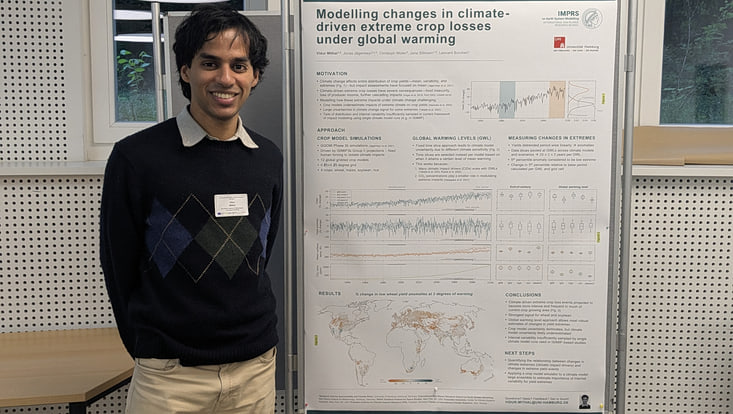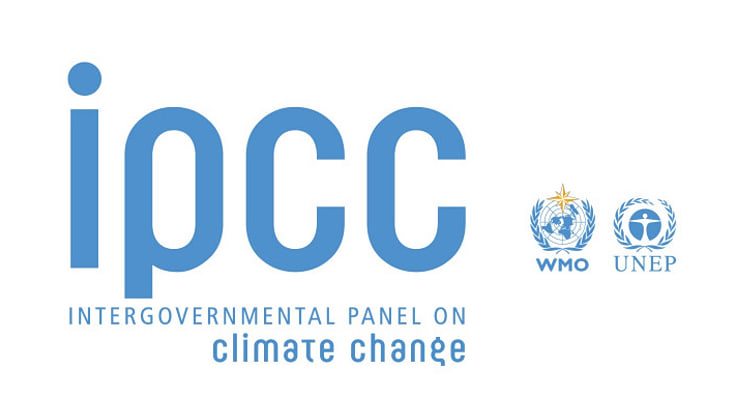Vidur Mithal presents research at AgMIP and ISIMIP workshops
19 May 2025, by Vidur Mithal

Photo: Vidur Mithal
Vidur Mithal, a PhD candidate in the Climate Extremes group at FNK and the International Max Planck Research School on Earth System Modelling (IMPRS-ESM), recently presented his research on modelling the impacts of climate extremes on agricultural yields at two conferences — the AgMIP10 Global Workshop in Mexico, and the ISIMIP workshop in Potsdam.

The Agricultural Model Intercomparison and Improvement Project (AgMIP) is a major international collaborative effort to improve agricultural modelling, understand the impacts of climate change on the agricultural sector at various scales, and improve science-policy linkages to support sustainable food systems. The 10th Global Workshop of AgMIP was held in El Batán, Mexico from 31 March to 4 April, with the central theme of "Responding to Climate Change Urgency". Here, in a session titled "Projections of future crop productivity", Vidur presented his work on quantifying changes in climate-driven crop losses under global warming.

While AgMIP brings together experts from different components of the agricultural sector, the Inter-sectoral Impact Model Intercomparison Project (ISIMIP) seeks to promote multi- and cross-sectoral investigation of climate impacts on society. Agriculture is one of the sectors represented in ISIMIP, and other sectors include groundwater, labour, energy, and health. The 2025 cross-sectoral ISIMIP workshop held at the Potsdam Institute for Climate Impact Research (PIK) from 5 May to 8 May. The workshop was co-organized with the OptimESM Horizon Europe project with the aim of bringing together the earth system modelling, impact modelling, and integrated assessment modelling communities. At the workshop, Vidur presented his research as one of around 20 posters covering a wide range of climate impact topics.
In his research, Vidur uses simulations from 12 global gridded crop models (GGCMs) driven by 5 climate models under various global warming scenarios to quantify how crop loss events driven by climatic conditions will change in the future, and what drives these changes. The so-called "global warming level" approach is shown to be effective at reducing uncertainties stemming from differing climate sensitivities across climate models in projections of extreme crop yield impacts. The contributions also highlighted the need to account for internal variability in agricultural and other impact assessments, without which impacts may be considerably underestimated.


